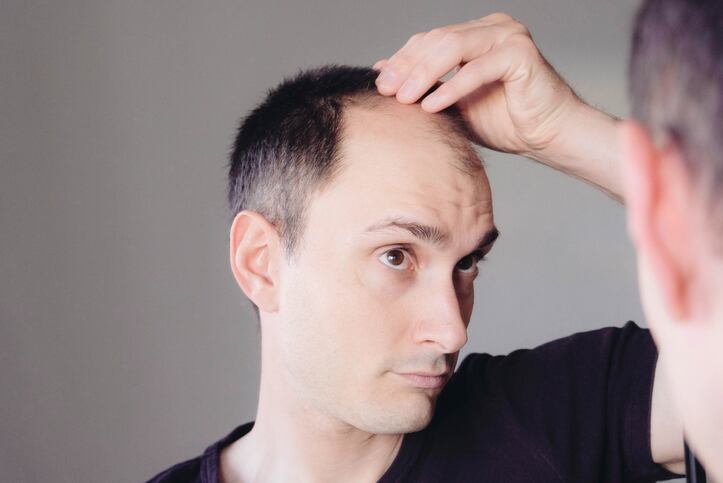A group of Japanese researchers from Tokyo Medical and Dental University have discovered that a high-fat diet accelerates hair thinning and hair loss as we age.
The study, published in the journal Nature, found that among a group of mice fed either a high-fat diet (HFD) or a standard diet, those fed a high-fat diet were more likely to experience hair thinning and loss.
"High-fat diet feeding accelerates hair thinning by depleting hair follicle stem cells (HFSCs) that replenish mature cells that grow hair, especially in old mice," explained lead author Hironobu Morinaga. "We compared the gene expression in HFSCs between HFD-fed mice and standard diet-fed mice and traced the fate of those HFSCs after their activation. We found that those HFSCs in HFD-fed obese mice change their fate into the skin surface corneocytes or sebocytes that secrete sebum upon their activation. Those mice show faster hair loss and smaller hair follicles along with depletion of HFSCs."
In just four days, researchers were able to observe changes in the hair and skin of mice fed the high-fat diet, as well as signs of increased oxidative stress.
Although overweight people have a higher risk of hair loss, whether obesity accelerates hair thinning, how and the molecular mechanisms have been largely unknown. The researchers did identify some of the mechanisms.
“The gene expression in HFSCs from the high-fat–fed mice indicated the activation of inflammatory cytokine signaling within HFSCs” said Emi K. Nishimura, senior author. “The inflammatory signals in HFSCs strikingly repress Sonic hedgehog signaling that plays a crucial role in hair follicle regeneration in HFSCs.”
The researchers confirmed the activation of the Sonic hedgehog signaling pathway in this process can rescue the depletion of HFSCs. “This could prevent the hair loss brought on by the high-fat diet,” added Nishimura.
New insight
This study offers new answers into the specific cellular fate changes and tissue dysfunction that can occur following a high-fat diet and may open the door for future prevention and treatment of hair thinning as well as for understanding of obesity-related diseases.
Nutritionists have speculated that rapid weight loss and stress were the culprits behind hair loss, but now researchers say it’s the high fat.
William Gaunitz, a certified trichologist and founder of Advanced Trichology, said he has witnessed hair loss first-hand with patients who switched to a high-fat diets like keto.
“This type of loss falls under inflammatory hair loss,” said Gaunitz. “We typically try to make dietary changes to eat correctly for their blood type, use NutraM Topical Melatonin as an anti-inflammatory, and review their blood test for markers.”
Some of the markers he uses are thyroid stimulating hormone (TSH), the antinuclear antibody (ANA) and C-reactive protein (CRP) tests.
“These data collectively demonstrate that stem cell inflammatory signals induced by obesity robustly represses organ regeneration signals to accelerate the miniaturization of mini-organs, and suggests the importance of daily prevention of organ dysfunction,” the authors concluded.
Source: Nature
DOI: 10.1038/s41586-021-03624-x
“Obesity accelerates hair thinning by stem cell-centric converging mechanisms”
Authors: H Morinaga et al.

